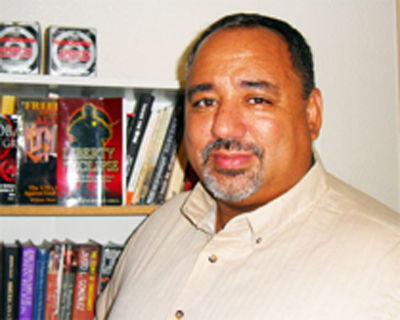The Pointlessness of Prohibition (Pt. I)

Last of the breed: Legendary Frontier Marshal Bill Tilghman, a casualty of our nation’s first “War on Drugs.”
On this day (December 5) in 1933, the 21st Amendment was ratified by Utah, thus bringing to a merciful end one of our nation’s most deranged experiments in social control: The federal ban on “the manufacture, sale, or transportation of intoxicating liquors within, the importation thereof into, or the exportation thereof from the United States….”
It is a pity that this exercise in civic derangement, which began in 1920, hadn’t ended a decade earlier. Had reason reasserted itself by 1923, numerous tragedies could have been avoided, including the murder of legendary frontier lawman Bill Tilghman by a drunken, corrupted prohibition agent named Wiley Lynn.
At the time of his death in November 1924, Tilghman was seventy-five, and had spent a half-century in law enforcement. As a teenage buffalo hunter, Tilghman had dropped thousands of the prairie bison, an accomplishment not to be mocked even though he and other hunters were being used (often unwittingly) in a federal scheme devised by General Sherman to herd the Plains Indians into reservations. During his hunts the young Tilghman made the acquaintance of Bat Masterson, Wyatt Earp, and others with whom he would later collaborate as members of the legendary Dodge City Peace Commission.
During the 1890s, Tilghman, as a federal marshal in Oklahoma, led the effort that defeated the Doolin-Dalton gang; he single-handedly captured gang leader Bill Doolin in 1895. Widely and properly admired for his insane courage (“Tilghman would charge hell with a bucket,” said an admiring Teddy Roosevelt), the marshal was also respected for his kindness and integrity. “The man I consider it an honor to have known and to have ridden with was Bill Tilghman,” wrote George Bolds, a widely respected frontier marshal in his own right. “Wyatt Earp was a great Western marshal, but to my mind, Bill Tilghman was greater, both in character and in deeds.”
After a brief career in politics and a short stint as a Hollywood consultant, Tilghman was dragged out of retirement in 1924 to serve one last term as a city marshal. At the time the venerable lawman was dying from cancer, something known only to himself and his intimate friends (including, of course, his second wife, Zoe; his first wife Flora had died several years earlier). Oklahoma Governor Martin Trapp gave Tilghman the assignment to clean up Crockett, an oil town widely reputed to be the “wickedest city in Oklahoma.”
Cromwell was dominated by a criminal syndicate headquartered in Oklahoma City. Like many other murderous cliques of its sort, the OKC mob was profiting handsomely as a result of prohibition, which led to vastly inflated prices for sub-par booze. Killian, the mob boss who ran Cromwell, diverted a portion of the profits into the pockets of federal Prohibition Agent Lynn.
Tilghman, aware that the federal agent was in the pocket of the mob, had sharp words with Lynn on more than one occasion, generally after the Fed had released a criminal suspect the marshal had put in jail. Tilghman was also aware that the mob had put a price on his head. Tilghman was fatally shot during an attempt to arrest and disarm a drunken Lynn on the night of November 1. Despite being identified by one of Tilghman’s deputies as the one who fired the lethal shots, Lynn was acquitted of the crime he’s still widely believed to have committed.
Bill Tilghman was the last of his breed, a Frontier Lawman devoted to maintaining a civic order intended to protect life and property. His murderer could be regarded as a particularly corrupt specimen of the New Model Federal Lawman, a parasite serving the whims of social engineers determined to use the State’s coercive power to correct what they consider to be defects in the way others choose to live.
It’s always “For the children”: A 1920s-era federal propaganda poster urging compliance with the national ethanol price support program (aka Prohibition).
Biologist and political commentator Bill Walker describes Prohibition as the first federal effort to “regulate the bloodstream of all US citizens.” It was also a huge subsidy to both the criminal Underworld and the bureaucratic political class with which organized crime lives in corrupt symbiosis.

At the time alcohol Prohibition (what Walker calls the “federal ethanol price support program”) went into effect, the equivalent program for narcotic drugs was in its infancy. Like its long-dead sibling, the narcotic price support program, known colloquially as the “war on drugs,” has done nothing to reduce consumption of various controlled substances, but a great deal to enrich the criminal underworld and, even worse, to empower the much deadlier criminal syndicate called the State.
I’ll have more to say on that subject tomorrow….
Content retrieved from: http://freedominourtime.blogspot.com/2006/12/pointlessness-of-prohibition-pt-i.html.





























